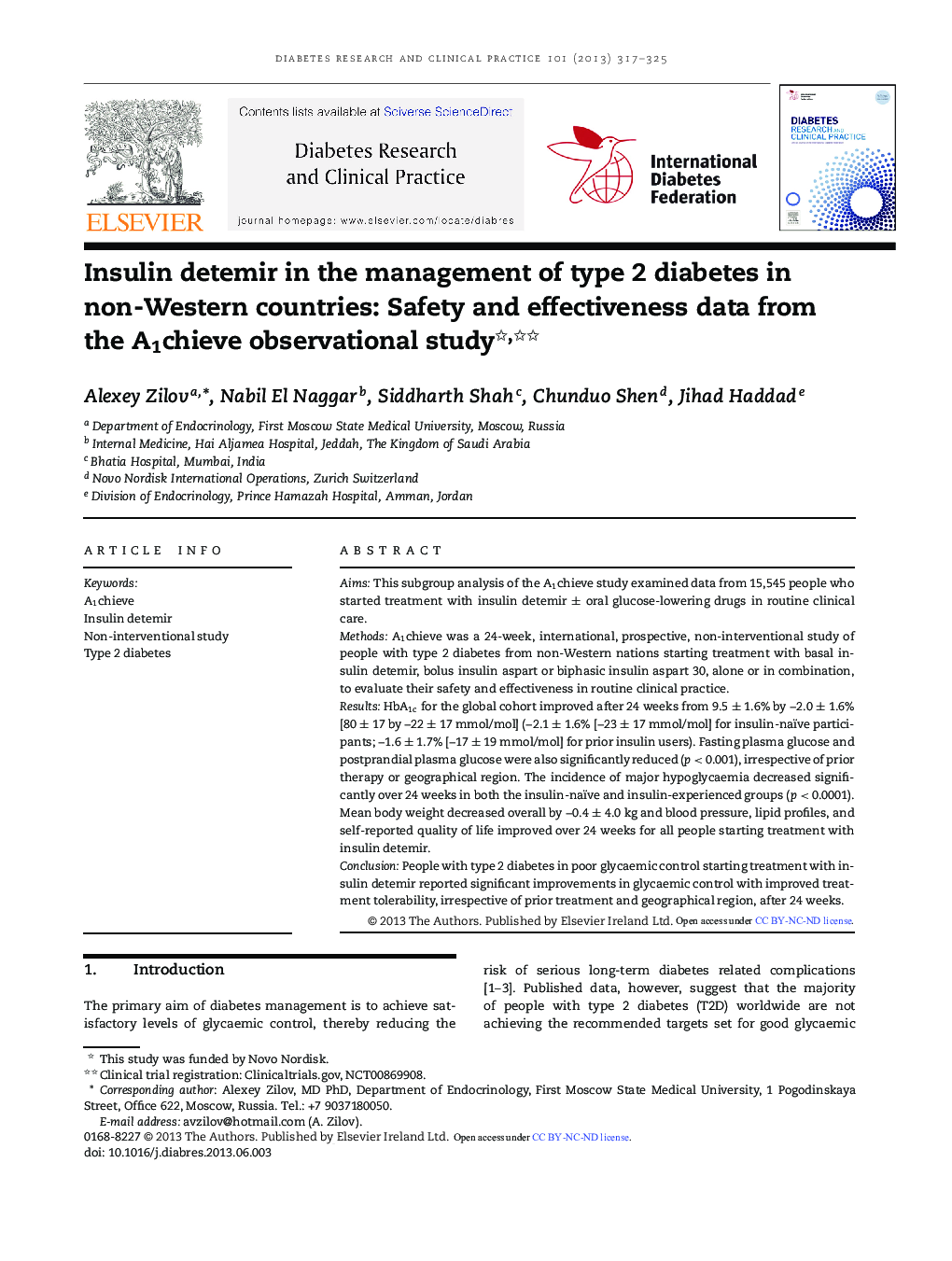| Article ID | Journal | Published Year | Pages | File Type |
|---|---|---|---|---|
| 5899869 | Diabetes Research and Clinical Practice | 2013 | 9 Pages |
AimsThis subgroup analysis of the A1chieve study examined data from 15,545 people who started treatment with insulin detemir ± oral glucose-lowering drugs in routine clinical care.MethodsA1chieve was a 24-week, international, prospective, non-interventional study of people with type 2 diabetes from non-Western nations starting treatment with basal insulin detemir, bolus insulin aspart or biphasic insulin aspart 30, alone or in combination, to evaluate their safety and effectiveness in routine clinical practice.ResultsHbA1c for the global cohort improved after 24 weeks from 9.5 ± 1.6% by â2.0 ± 1.6% [80 ± 17 by â22 ± 17 mmol/mol] (â2.1 ± 1.6% [â23 ± 17 mmol/mol] for insulin-naïve participants; â1.6 ± 1.7% [â17 ± 19 mmol/mol] for prior insulin users). Fasting plasma glucose and postprandial plasma glucose were also significantly reduced (p < 0.001), irrespective of prior therapy or geographical region. The incidence of major hypoglycaemia decreased significantly over 24 weeks in both the insulin-naïve and insulin-experienced groups (p < 0.0001). Mean body weight decreased overall by â0.4 ± 4.0 kg and blood pressure, lipid profiles, and self-reported quality of life improved over 24 weeks for all people starting treatment with insulin detemir.ConclusionPeople with type 2 diabetes in poor glycaemic control starting treatment with insulin detemir reported significant improvements in glycaemic control with improved treatment tolerability, irrespective of prior treatment and geographical region, after 24 weeks.
